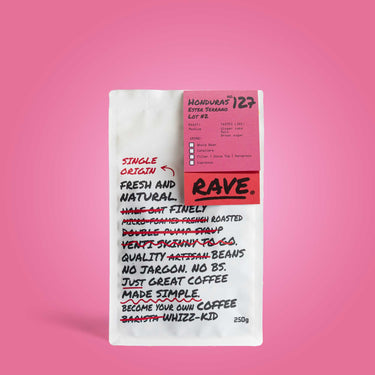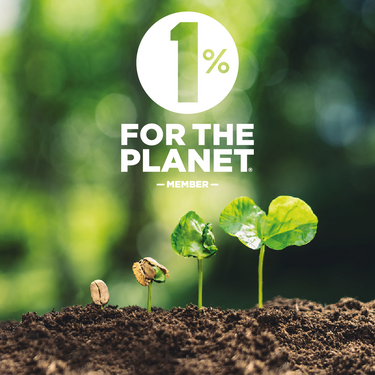
Farm - Doyo Cooperative – approximately 430 small holder farmers
Altitude - 1800-2100masl
Location - Mana District, Jimma Zone of the- Oromia Region - Western Ethiopia
Preparation - Washed and sundried.
Varietal - Various heirloom coffees.
Owners - 430 smallholder farmers
Certification - A TechnoServe project though no certification at present
Harvest - November to February
It is widely believed that coffee originated in Ethiopia and is therefore indigenous to the country, though there are other schools of thought that suggest it may have all started in Sudan. Generally speaking though, it is the town of Kaffa, from which coffee derives its name, that is considered the rightful birthplace of this wonderful commodity and to this day coffee grows wild in the area.
Research suggests that coffee was originally used as a food – ground still raw and blended with animal fats. Kaldi is of course the famous name of our industry, for legend has it that it was this goatherd who discovered coffee. He copied his goats by eating the bright red cherries that made them so lively and in doing so joined in with their wild dancing.
A preacher observing such frivolities hurled Kaldi’s cherries onto a fire declaring them the devil’s work - until the air was filled with the delightful aromas of the roasting beans, upon which he relented, declaring such a fragrance to be surely the work of God!
Ethiopia produces a wide range of coffee with each region’s beans having very distinctive characteristics making some of these the best and most sought after in the world. Key producing regions include Harar, Sidamo, Yergacheffe (in Sidamo), Limu, Djimmah, Lekempti and Bebeka. Ethiopia is the largest coffee producer in Africa and, in the Arabica league, is third in the world with a production of between 4 and 5 million bags.
DOYO COOPERATIVE
Traditionally, coffees from Western Ethiopia were considered to be of a lower grade due to a lack of technical infrastructure in place which would result in a cleaner and more complex cup profile. Most of the coffee produced here was naturally processed as a result of poor access to washing stations in the area.
However in 2008, TechnoServe (a non-profit organisation whose mission is to empower people in the developing world to build businesses that break the cycle of poverty) started to work in Oromia in an attempt to add value to the product farmers had to sell. Washing stations have been financed throughout the region and cooperative managers have been trained in production methods (e.g. meticulous sorting, well-managed drying etc) to focus on increasing the quality of the coffee produced there.
The results have been unprecedented and the region is now producing coffees that can rival some of the best washed coffees from Sidamo and Harrar with incredible clarity and floral traits.
The Doyo cooperative is part of the Oromia Coffee Farmers Cooperative Union (OCFCU) which brings together nearly 200 groups from this coffee growing region, which accounts for 65 per cent of the country’s total coffee growing area. The OCFCU is a small-holder cooperative union that represents close to a quarter of a million farmers. It was established in 1999 to allow the direct export of coffee produced by farmers who had organised themselves into cooperatives.
The Doyo Cooperative and washing station can be found near the city of Jimma and has nearly 430 active members and over a thousand semi-regular participants. Coffee is farmed here on areas that are usually smaller than half a hectare alongside other crops such as maize, teff and bananas. The abundance of heirloom varietals and altitudes over 2000 metres above sea level combine to develop deeply complex flavours in the cup, but these are not the only factors that contribute towards the production of this outstanding coffee.
The washing station installed at the cooperative was a pioneering station in the area and allows the carefully handpicked coffee to be wet milled on site. Once the cherries have been delivered to the wet mill, they are pulped within 4-8 hours to remove the fruit and 80-90% of the sticky mucilage from the bean. The beans are then left to soak in water overnight before being washed again and spread onto shade covered drying tables.
In order to minimalise the risk of pollution in surrounding areas, the Doyo Cooperative has implemented the use of the natural ‘vetiver grass’ in sediment pools to remove any impurities from water used to process the coffee. The wet parchment coffee is then sorted by washing station staff, who will remove any beans that appear to have defects such as being under-ripe or insect-damaged. The parchment coffee is then transported to the final drying tables, where it is left for a period of 7-14 days dependent on weather conditions and is frequently turned over to ensure even drying.
Members of the OCFCU can benefit from pre-harvest financing and insurance options to cover their crops against any losses due to external factors.
Acidity: 8 - Piquant acidity
Sweetness: 9 - Fantastic sweetness that dominates the cup
Character: 9-10 - Apricots, fresh marzipan, floral notes
Body: 8 - Depending on the roast
Balance: 8.5





